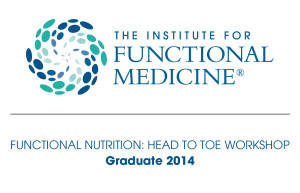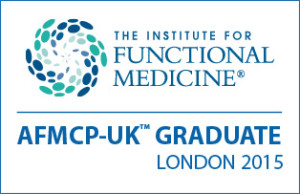What is methylation and what is methylation’s role in health and disease?
Perhaps you have heard about the common genetic variant MTHFR and are wondering how this may be affecting your health. MTHFR is just one of several genetic variants that can affect the process of methylation. In naturopathy and functional medicine we are interested in finding the root causes that can guide nutritional therapy and lifestyle changes.
In this article I will explain why poor methylation can cause symptoms in many different areas, and hence why the MTHFR and other genetic variants as well as nutrition, toxic overload and lifestyle factors that effect methylation can be so crucial for optimal health.
Methylation is the transfer of a methyl group (a carbon atom with three hydrogen atoms attached represented as CH3) from one molecule to another. It occurs in your body billions of times every second and is of fundamental significance in the formation of compounds essential to your health.
Methylation capacity effects:
- energy production (1)
- immune system health (2)
- gut health (3)
- fertility and pregnancy outcomes (4)
- cardiovascular health (5)
- detoxification (6)
- DNA expression aka epigenetics (7)
- hormone balance (8)
- fibromyalgia (9)
- brain health and nerve protection – depression and anxiety (10), Alzheimer’s disease (11), migraine with aura (12), ADHD (13), autism (14), Parkinson’s disease (15) and multiple sclerosis (16)
- osteoporosis (17,18)
Imagine a complex network of water pipes with taps at various junctions. Sometimes a loosely fitting large tap will let a lot of water through fast when you twist it a bit and could put stress on the pipes and cause a chaotic imbalanced flow in the system. More often a small and tight tap can block the flow of the whole system or just part of it depending on where it is located.
Each tap represents a specific enzyme and its design (size and tightness) represents the genetic blueprint for the enzyme. The flow represents the biochemical processes that maintain life and good health. Some of the pipes direct the flow to strengthen the immune system, some goes to keep your brain happy, some to help your gut stay strong, some to keep your genes healthy, some to clear out dangerous toxins, some to some to strengthen your bones, some to help you create healthy offspring. Often some of the taps are too small and stiff and we need extra correctly fitting spanners (specific nutrient cofactors) to open them up more so that the whole system can work.
Testing your genes lets you find out which taps are tight and which are loose so that you know exactly which spanners (nutrients) you may need to have at hand to support good flow throughout the whole system.
There are many common variations in the genes coding for these enzymes, causing the enzymes to work slower or faster than the norm, which means that the levels of nutrient cofactors required to balance the whole cycle varies from one individual to the next.
Fine-tuning nutrient intake can be compared to driving a car.
When you first learn to drive a car you learn to ‘find the bite’ and coordinate gear changes, pedals, hands, feet, head and eyes in order to avoid stalling the engine, causing the whole car to shudder and shake or even crash. As you gain experience this huge multivariate balancing act becomes easier and your car runs along smoothly navigating the turns that come its way with grace. Moreover, as you drive this car with greater ease you may find that it does some amazing things that no ordinary machine would do – it may clean out some of its own pipes, recharge its own battery, fine tune the controls, clean its own windows and fix the stereo to make your journey far more enjoyable.
Around 60% of people have a single variation on the MTHFR gene alone (from either their father or from their mother) which reduces their ability to methylate by around 30-40%.
Around 30% of people have a double variation on the MTHFR gene (one variation from each parent) which reduces the rate of methylation by around 60-80%.
We evolved with these variations passed down successfully through many generations so they must have their advantages and are not to be seen as ‘defects’. Rather it is our modern diet, lifestyle and toxic environment that leave shortcomings that may be amplified by our genetic inheritance. Dietary and lifestyle changes are the vital first step before focusing on nutritional supplements to improve methylation.
It is important to realise that any variations in genes related to methylation panel do not accurately reflect actual current methylation status which may instead be assessed with functional testing. Many other factors effect methylation status besides your genes and you may have imbalanced methylation without a genetic predisposition.
Book a free no-obligation 20-minute telephone appointment using the box to the right to find out more about how I can help you before booking an initial consultation.
Learn more about my work in London and Totnes, or find out about online consultations.
Please note: I do not offer medical advice nor is my work a substitute for medical care. In the interests of your safety you will be required to agree to Tom’s Terms and Conditions.
[widget id=”text-2″]







